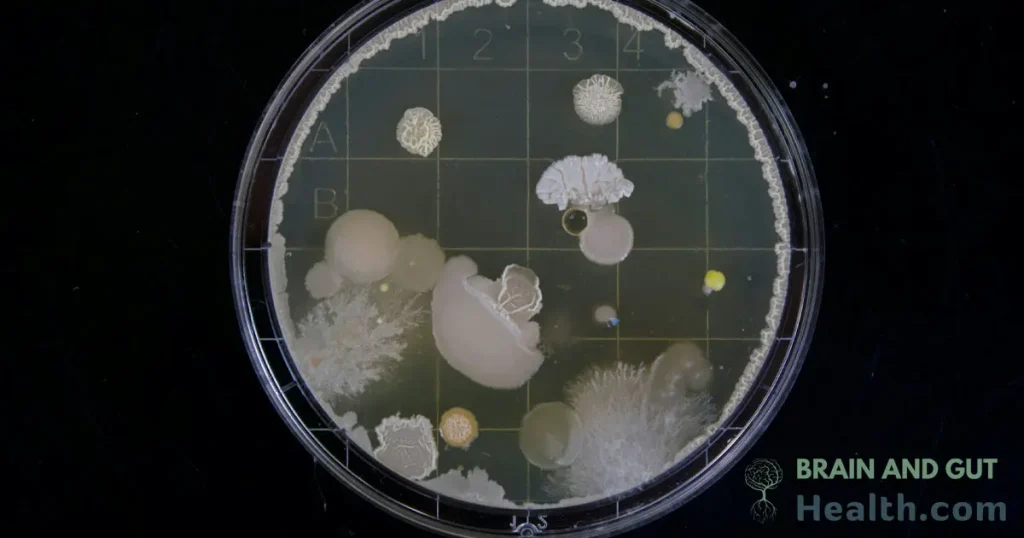Ever wondered why sugar is bad for gut health? Overconsumption of sugar is associated with an increase in noncommunicable illnesses such as cancer, diabetes, and cardiovascular diseases. This increase in incidence is a public health issue that is worse than infectious diseases and contributes to 35 million deaths each year. The same health issues can be caused by excessive consumption of sugar. Recent international recommendations have raised concerns over sugar consumption among Westernized societies. This is because current levels of consumption are unprecedented in the evolution of hominins.
The World Health Organization recommends that both adults and kids reduce their sugar intake below 10% of total calories and further lower to 5%. The majority of studies focused on the detrimental effects of Western diet patterns on global health, and on the intestine. While the impact of excessive sugar consumption has been well described, it is not as clear when it comes to dietary fat. In industrialized countries, refined sugars can account for up to 40% caloric intake. When it comes to brain and gut health, do you need to reconsider your sugar intake?

Why Sugar Is Bad For Gut Health Introduction
High sugar intake has been linked to multiple organ and tissue dysfunctions. Hyperglycemia, as well as excessive sugar consumption, disrupts the intestinal barrier. This increases gut permeability, and causes a profound dysbiosis of gut microbiota, which leads to a disruption in mucosal immune function, increasing infection susceptibility. This review is intended to highlight the role of different types dietary carbohydrate and their consequences for intestinal homeostasis.
Understanding the Gut Microbiome
Microbes are bacteria, viruses, fungi and other microorganisms that exist inside the human body. These microbes are found in trillions on the inside of the intestines, and also on the surface of the skin. The medical term “gut microbiome” refers to the microbes found in the cecum, a part of the large intestinal tract. Up to 1,000 different species of bacteria can be found in the gut microbiome of an individual. Bacterial cell numbers in the body are 10 trillion times greater than human cells. While many species are good for our health, some species cause disease. These microbes together make up the gut microbiome which is important for human health. This article examines how excessive sugar consumption or high sugar levels affect this important part the digestive system.
Impact of Sugar on Gut Health
A high sugar intake can block the production of lean protein. A study by Yale University, the National Institutes of Health and others found that the consumption of fructose and sucrose (two forms of simple sugars), could affect the composition of gut microbiome. A study on mice revealed that a high-sucrose/glucose intake affected the Bacteroidesthetaiotaomicron. This species is linked to an individual’s capacity to digest certain healthy foods, such as vegetables. The table sugar (sucrose) contains both fructose, and glucose. It has been shown to inhibit the production of Roc. This protein is required for colonization by this type of bacteria.
Researchers in the study created a strain of the bacterium which did not prevent the production Roc. This strain did not prevent the protein colonizing the bacterium. This led to a healthier microbiome in the gut. Researchers concluded that diet plays a role in gut microbiota beyond providing nutrients. Sugar and carbohydrates can act as signaling molecules.

Inflammation and Gut Health
Sugar-rich diets can lead to inflammation. A diet high in sugar and processed foods can destroy the good bacteria in our gut. This imbalance can lead to increased sugar cravings, which in turn further damage the gut. Unhealthy amounts of sugar, particularly high-fructose syrup, can cause inflammation in the body. This can cause additional diseases, including cancer.
Blood Sugar and Gut Microbiome
High sugar levels also affect the ability of the microbiome in the gut to regulate blood glucose. This can lead to the onset of Type 1 or Type 2 diabetes. Recent research examined 33 infants with a genetically high risk of Type 1 diabetes. The diversity of the microbiome was found to have dropped suddenly prior to Type 1 diabetes. Researchers also found that unhealthy bacteria species were present in high levels before the diagnosis. In a separate study, researchers found that people’s blood sugar levels spike in different ways even if they eat the same food. It is thought that this is due to the different types of bacteria in the microbiome.
Leaky Gut Syndrome Associated with Sugar Consumption
A leaky gut can be caused by too much sugar. A condition called dysbiosis can be caused by an increase in pathogenic microorganisms, the types of bacteria that cause disease. This type of bacteria can cause changes in the mucosal internal barrier of the intestine. The permeability of this barrier is altered when beneficial bacteria are reduced. Harmful substances can then pass through. Leaky gut syndrome is the result of this. An inflammatory immune reaction targets the substance that has leaked through the intestines.
Sugar and Bacterial Energy
Sugar’s effect on gut bacteria depends on the bacteria. Sugar may not affect all bacteria in the gut microbiome equally. Sugar can be broken down by bacteria to give them energy. Sugars from a high-sugar diet can enter the gut microbiome and give bacteria energy to multiply. This upsets the balance of the microbiome. A balanced diet is essential to a person’s health.
Improve gut microbiome
The gut microbiome may take some time for it to improve, depending on the extent of the sugar’s effect on the bacteria in the gut. It takes about six months to develop a healthy microbiome. A balanced diet can help individuals lead healthy lifestyles.
The negative effects of sugar on gut health
Many foods are good for your gut health, but others should be avoided. Sugar is the worst food for gut health, according to research. Here’s why.
The small intestine is where sugar is absorbed the most. Most of your gut bacteria are located in your large intestinal tract. If you eat a moderate amount, sugar is unlikely to affect the microbes in your large intestinal ecosystem. Sugar is the brain’s preferred fuel. Sugar comes in many forms, from sugar in fruits and vegetables, to sugar in “free” foods such as cakes, biscuits and yogurts.
Moderation is the key. If you consume more sugar than your small intestinal tract can handle (around 7 teaspoons), then moderation will be required. Sugar can pass down to the large intestine, where it may inhibit the good bacteria from performing their job and change the environment in favor of less helpful bacteria. Seven teaspoons may seem like a lot, but it’s only a can Coke.
Your gut health will be improved by a varied diet. Watch out for hidden sugars. Fiber is abundant in fruits and vegetables. Fiber is good for the gut bacteria and slows the rate of sugar absorption into the blood.

Still want some sugar?
Why Sugar is bad for your gut
You’ve probably heard before that too much added sugar or refined sugar is bad for your health. It does not include the sugars naturally found in milk and fruit, but instead added sugars such as white sugar and brown sugar. You can easily overconsume these sugars because they are found in soda, cookies, candy and yogurt. Refined sugars can cause a variety of chronic diseases over time, including obesity, heart disease, and diabetes. Nearly 90% of Americans are still exceeding the Dietary Guidelines for added sugar. The Dietary Guidelines (DGA) recommend that no more than 10% of calories should come from sugar added. Sugar consumption can also have unintended effects on gut health.
Sugars such as high-fructose syrup are linked to increased inflammation. This inflammation can damage the protective mucus and decrease the number of good bacteria in the gut. In a recent study, published in Science Translational Medicine, mice that consumed a high-refined sugar diet had a higher incidence of gut disease like colitis. They also experienced degradation of their protective mucus lining. This latest study, which was conducted on animals, echoed similar findings from previous studies that showed diets higher in refined sugars (over 165 g a day), had a significant effect on gut function when compared with diets lower in sugars (60 g a day). According to a study published in Obesity Reviews, consuming high amounts of sugars over a long period can negatively impact the composition of your gut.
Artificial Sweeteners & Gut Health
Artificial sweeteners can still have a negative impact on the gut, even though they don’t typically contain sugar. Since artificial sweeteners do not contain calories, they are passed through our system and in contact with the microflora of our gut. Artificial sweeteners have the same effect on our gut microbiome as everything else we eat. According to a study published in Nature, artificial sweeteners can alter the composition of your gut in ways that may lead to glucose intolerance or insulin resistance and increase diabetes risk.
In a 2016 review, researchers found that artificial sweeteners could also affect gut motility and worsen gastrointestinal diseases such as irritable Bowel Syndrome. Since the microbiome can be so unique, we need more human studies to better understand it.

Maintaining Gut Health
Sauerkraut, leeks and berries are all good foods for your gut. Focus on these foods instead of the bad ones. Even though sweeteners are one of the worst culprits, you can still be healthy and enjoy a little sweetness. It isn’t realistic to eliminate them completely, so instead, try reducing the amount of sugar and artificial sweeteners you consume.
Four Simple Ways to Reduce Sweeteners
Sauerkraut, leeks and berries are all good foods for the gut. Focus on these foods instead of those that are not so healthy. Even though sweeteners are one of the worst culprits, you can still be healthy and enjoy a little sweetness. It isn’t realistic to eliminate them completely, so instead, try to reduce the amount of sugar and artificial sweeteners you consume.
- Switch to tea or seltzer instead of sodas or sweetened drinks. You’ll be able to control how much sugar is added when you make your tea or coffee, and seltzer will give you your sugar-free bubbly fix. You can add frozen berries and citrus slices to your drink without adding any sugar.
- Fruit is a great snack. If you’re feeling a sweet craving, grab an apple, some berries or an orange. Fruit is rich in natural sugars and vitamins. It can also satisfy a sweet tooth while boosting gut health.
- Use moderation. Planning in advance for a sweet treat will help you select the right portion size. Plan ahead for a healthy treat so that you are not caught with a sweet snack in an emergency. You can enjoy sweets more mindfully by consuming them in moderation, whether they are food or beverages.
- Read the labels. Some foods, such as plant-based dairy and condiments, can contain hidden sugars or artificial sweeteners. Use herbs and spices instead of a sauce packet from the store to enhance food flavor.
Fiber and Gut Health
Fiber is also a fuel source for the gut microbes. It is important to include a variety fiber-rich foods in your diet to maintain a healthy microbiome. Fruits, vegetables and whole grains are all excellent sources of fiber, which can support gut health.
Conclusion
Sugar consumption can have a negative impact on gut health, mood and well-being. Sugar intake can disturb the delicate balance in the gut microbiome. This can lead to leaky gut syndrome and inflammation as well as an increased risk for chronic diseases such diabetes. Natural and artificial sweeteners both negatively impact the microbiome of the gut, which highlights the importance for moderation and conscious consumption.
Supporting gut health requires a diet that is rich in fiber, low in sugars and high in fiber. Simple changes, such as switching sugary drinks for healthier alternatives, eating fruits and exercising moderation are all ways to protect gut health.
A diet rich in fiber will not only improve gut health, but also your overall health. A healthier and happier life can be achieved by taking proactive measures to reduce sugar consumption and support the microbiome of the gut.



